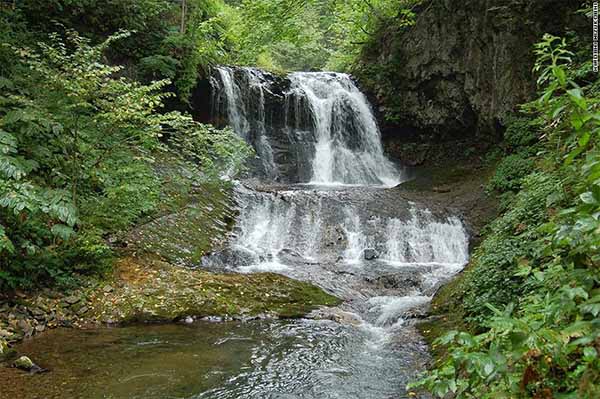Located in the western part of Sapporo city, Heiwanotaki Falls is situated in Nishi-ku (西区) at the base of Mt. Teine, the tallest mountain in Sapporo.
The area features a trailhead for hiking up Mt. Teine, a popular destination attracting numerous hikers and climbers on weekends and holidays, even during winter.
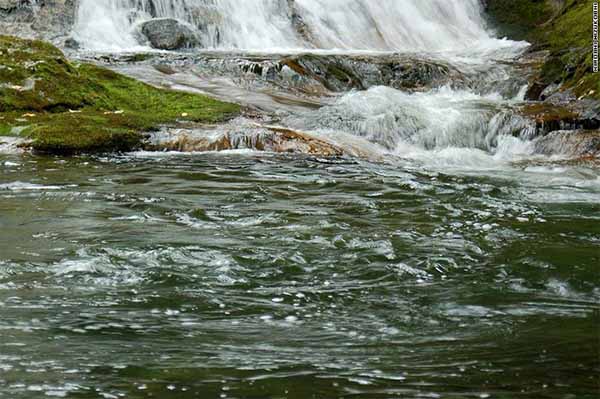
Access
Subway & Bus
To Heiwanotaki Fall
- Get off at Hassamu-minami station(発寒南駅) at Tozai Line.(東西線)Transfer a JR Bus: 発42 for ‘Heiwa-no-taki iriguchi-yuki’(平和の滝入り口行き)
- Or get off at Kotoni station(琴似駅)at Tozai Line.(東西線)Transfer a JR bus : 琴42 for ‘Heiwa-no-taki iriguchi-yuki’(平和の滝入り口行き)
- You can take both of them above. Get off the bus at ‘Heiwa-no-taki-iriguchi’(平和の滝入り口)where is the last stop.
- Go ahead to the right side road by 15-20 minutes walking to the Heiwa Falls. It’s the end of the road. You will see two small buildings of Temples and parking.
Back to Hassamu-minami station.(発寒南駅)
- Take a JR Bus: 発42 to Hassamu-minami station(発寒南駅)or 琴42 to Kotoni station (琴似駅)
- Transfer at Hassamu-nimani station.(発寒南駅)or Kotoni station(琴似駅) at Tozai Line(東西線)
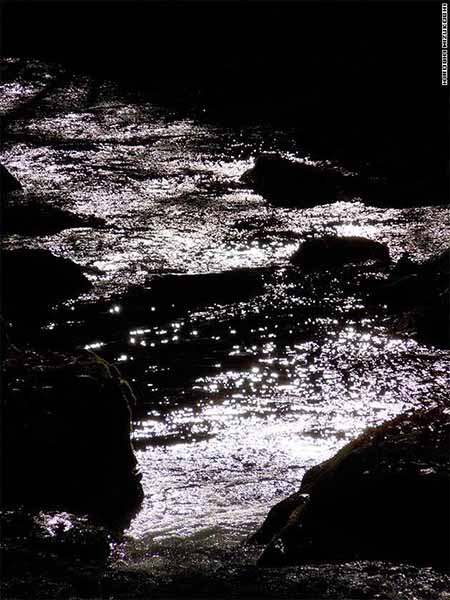
Heiwanotaki Falls is located to the left of the entrance. Despite its modest size, it is a picturesque waterfall. The water remains clear, cold, and tranquil throughout the year. However, as spring begins and the river collects melted snow, the volume of water increases significantly. The once gentle flow of the falls transforms into a powerful, muddy torrent.
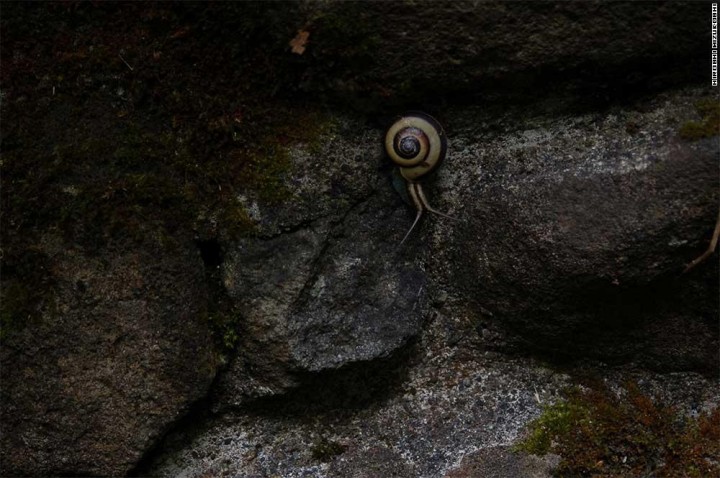
Just 30 minutes by car from the urban area, you can still find abundant nature here. The serene atmosphere of the forest offers a delightful contrast to Sapporo’s bustling city life, revealing a new side of the city. Hiking enthusiasts have been steadily increasing year by year. Climbing to the summit of Mt. Teine takes at least 3 hours from this point, even for a 6-year-old child. If you decide to trek to the top, it’s a genuine hiking experience that requires thorough preparation.
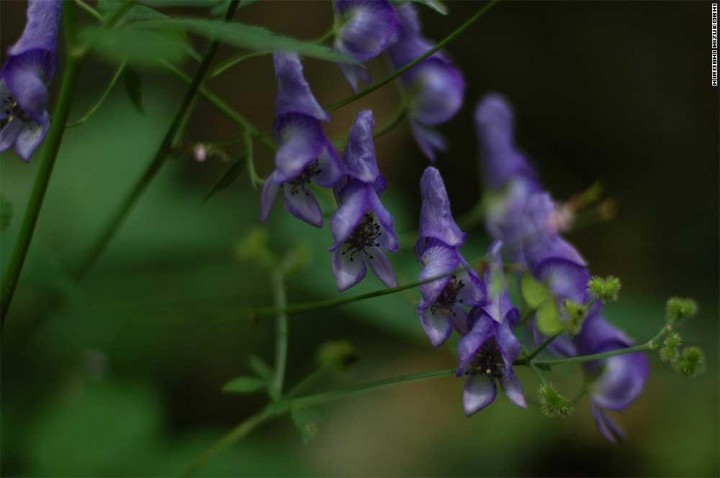
You’ll encounter various alpine plants. While they may not possess the grandeur of roses, their delicate beauty often goes unnoticed. Yet, this subtlety is a testament to the quiet brilliance of nature.
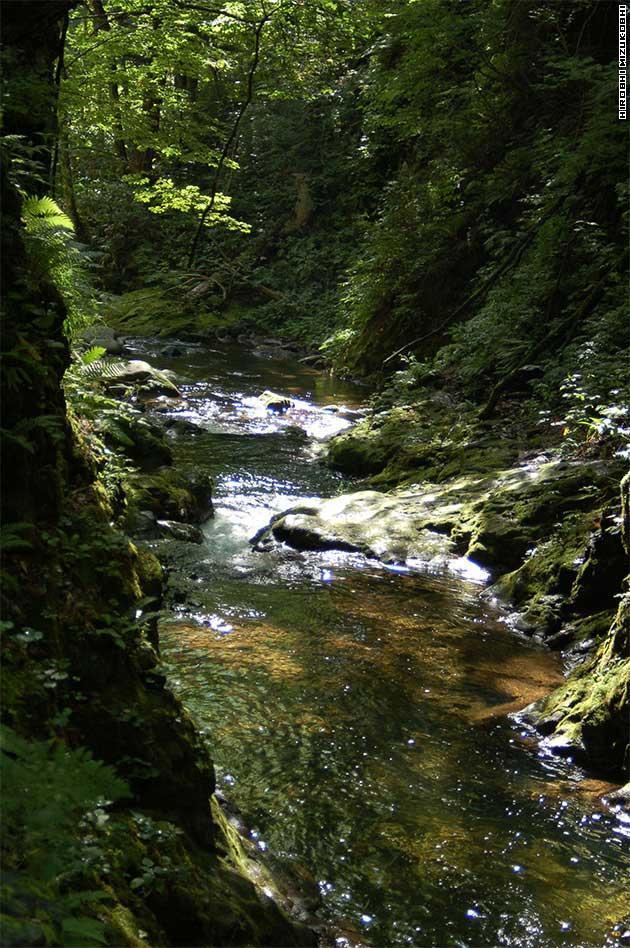
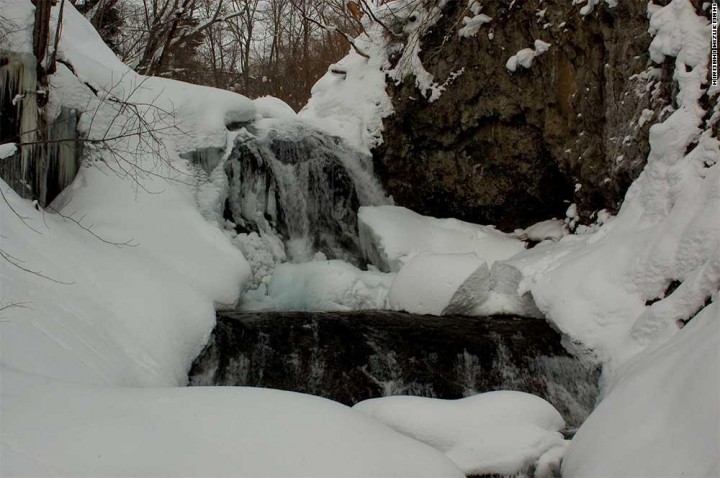
In winter, everything is frozen beneath a thick blanket of snow.
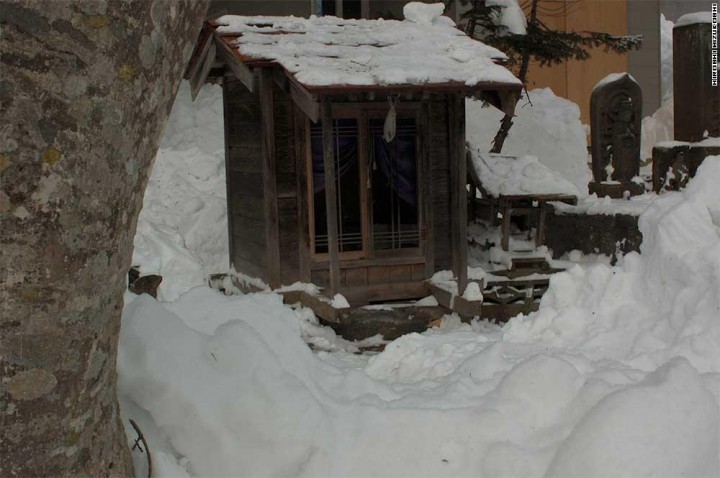
Why are there shrines and temples at the foot of the mountain? For centuries, mountains have been revered as sacred places in Japan. Although the object of worship may be invisible, people sense its presence and thus build shrines to honor their faith. These sacred sites represent the deep connection between people and nature, where individuals derive various benefits and express gratitude for the blessings of the natural world.
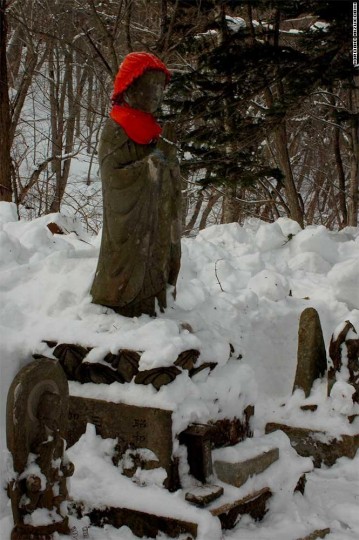
Neighborhood
- Bankei Ski Area
- Horomitouge lavender garden
- Sapporo Teine Ski Area
- Military housing of Kotoni Tondenhei Village(琴似屯田兵村兵屋跡), Sapporo
- Hiking from Sankakuyama to Okurayama in Sapporo
